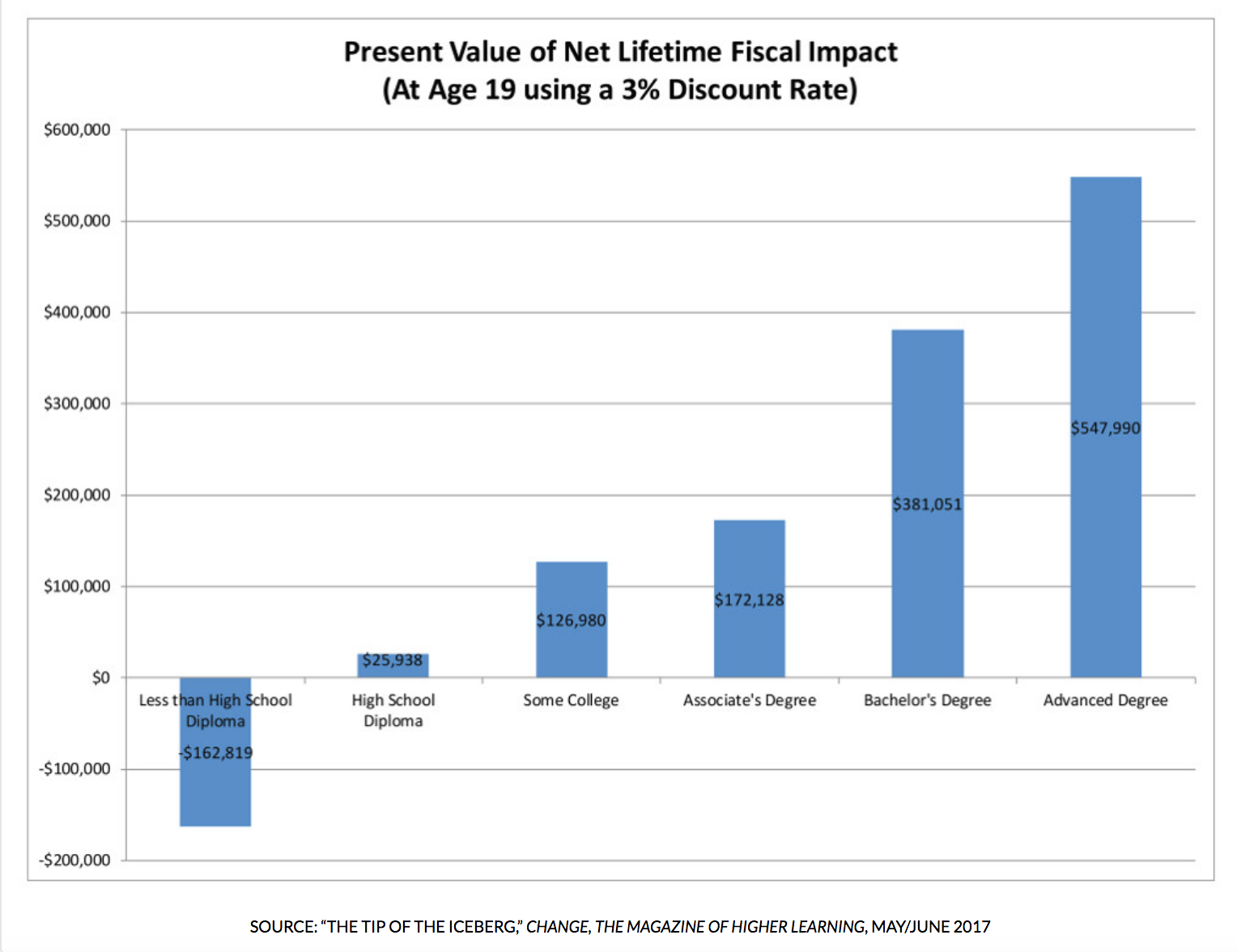
Bob Murphy, the Director of University Relations and Policy at the Michigan Association of State Universities (MASU), makes the argument for state investment in public higher education in a recent MASU blog post. Murphy explains that while university leaders have “long touted the personal return on investment” for those with four-year college degrees, several have also begun making arguments that appeal to conservative audiences.
In an op-ed for the Detroit News, President Glenn Mroz of Michigan Tech has presented a “single figure that tallies the lifetime fiscal impact of college attainment.” Those with four-year degrees generate over $355,000 more in net lifetime fiscal impact than those without a high school diploma.
This impact is due to the fact that college-educated adults are less likely to use government services such as Medicaid or SNAP and are likely to put more dollars into Social Security than they take out. According to Prof. Philip Trostel of the University of Maine, “supporting students in attaining higher education is one of the most fiscally conservative things a state can do.”
This is because, as Murphy writes, “investing in public higher education keeps students on the productive side of the fiscal ledger.” After receiving post-secondary degrees, adults are more likely to put more dollars into social programs than they take out.
The fiscal impact of higher education varies. For example, those with an Associate’s Degree generate $172,128, while those with less than a high school diploma detract $162,819. The MASU blog post includes this chart, which outlines the impact by degree type.

Source: “The conservative argument for state investment in public higher education – in one chart”
Talent 2025 recognizes the importance of increasing the number of adults with post-secondary education, and several of our working groups are focused on this issue. For example, the Workforce Development Working Group has recognized Education and Skills as one of four major barriers to the workforce. We are also focused on Goal 2025, which is to reach 64% of West Michigan adults holding some sort of post-secondary degree or certificate by the year 2025.


